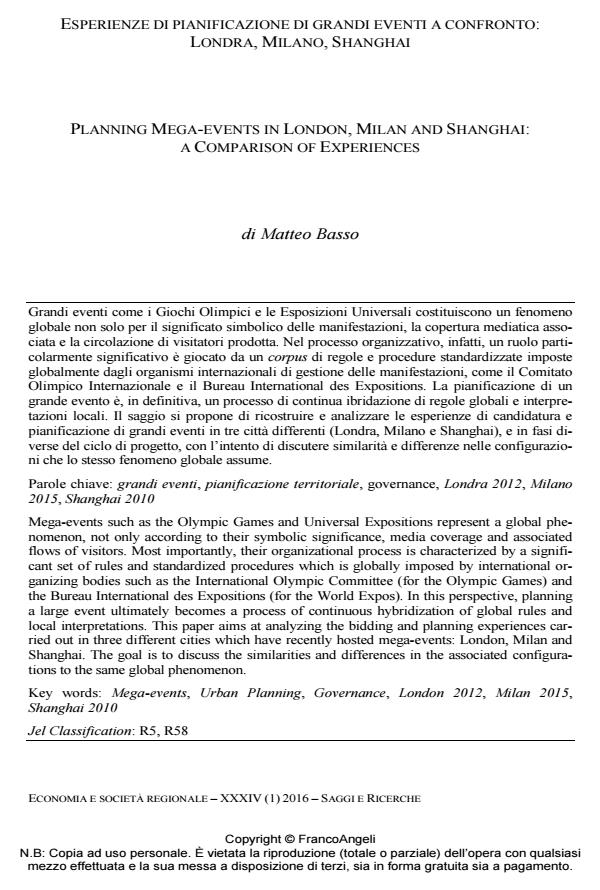Esperienze di pianificazione di grandi eventi a confronto: Londra, Milano, Shanghai
Titolo Rivista ECONOMIA E SOCIETÀ REGIONALE
Autori/Curatori Matteo Basso
Anno di pubblicazione 2016 Fascicolo 2016/1
Lingua Italiano Numero pagine 18 P. 124-141 Dimensione file 243 KB
DOI 10.3280/ES2016-001009
Il DOI è il codice a barre della proprietà intellettuale: per saperne di più
clicca qui
Qui sotto puoi vedere in anteprima la prima pagina di questo articolo.
Se questo articolo ti interessa, lo puoi acquistare (e scaricare in formato pdf) seguendo le facili indicazioni per acquistare il download credit. Acquista Download Credits per scaricare questo Articolo in formato PDF

FrancoAngeli è membro della Publishers International Linking Association, Inc (PILA), associazione indipendente e non profit per facilitare (attraverso i servizi tecnologici implementati da CrossRef.org) l’accesso degli studiosi ai contenuti digitali nelle pubblicazioni professionali e scientifiche.
Grandi eventi come i Giochi Olimpici e le Esposizioni Universali costituiscono un fenomeno globale non solo per il significato simbolico delle manifestazioni, la copertura mediatica associata e la circolazione di visitatori prodotta. Nel processo organizzativo, infatti, un ruolo particolarmente significativo è giocato da un corpus di regole e procedure standardizzate imposte globalmente dagli organismi internazionali di gestione delle manifestazioni, come il Comitato Olimpico Internazionale e il Bureau International des Expositions. La pianificazione di un grande evento è, in definitiva, un processo di continua ibridazione di regole globali e interpretazioni locali. Il saggio si propone di ricostruire e analizzare le esperienze di candidatura e pianificazione di grandi eventi in tre città differenti (Londra, Milano e Shanghai), e in fasi diverse del ciclo di progetto, con l’intento di discutere similarità e differenze nelle configurazioni che lo stesso fenomeno globale assume.
Parole chiave:Grandi eventi, pianificazione territoriale, governance, Londra 2012, Milano 2015, Shanghai 2010
Jel codes:R5, R58
Matteo Basso, Esperienze di pianificazione di grandi eventi a confronto: Londra, Milano, Shanghai in "ECONOMIA E SOCIETÀ REGIONALE " 1/2016, pp 124-141, DOI: 10.3280/ES2016-001009